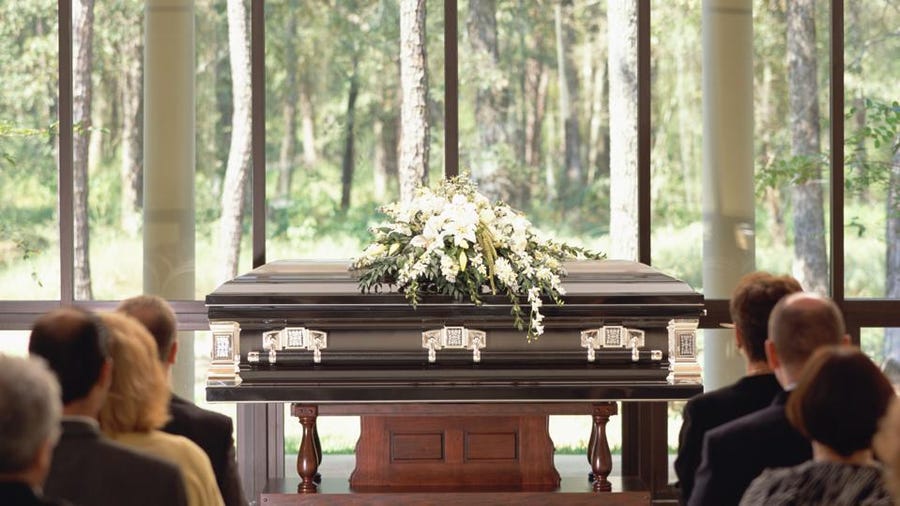7 Ways To Ensure Your Funeral Expenses Are Covered
By burial pro

With the median cost of a traditional funeral ranging from $6,971 to $7,848, according to the 2022 National Funeral Directors Association, it’s essential to prepare for how you want your funeral expenses covered. Most likely, costs will continue to increase every year.
Knowing that there is a financial cushion in case something unfortunate happens is a weight lifted off your shoulders, as no one wants their families to have to worry over expenses during bereavement. Emergency funds may not be enough to cover these costs.
Sadly, most of us have friends who have needed to start a Go Fund Me to help out with funeral arrangements. We assure you this is not something you’ll want to have happen to your family.
Here are some practical guides for setting up a funeral fund.
When it comes to securing smart financial strategies for funeral planning, a burial insurance policy can provide one of the most secure solutions. Life insurance pays a lump sum to the beneficiary of your choice when you pass away, often enough to cover funeral costs as well as other general needs of your survivors.
Burial insurance is often referred to as ‘final expense’ or ‘funeral insurance’. These are simply marketing terms given to smaller amounts of whole life insurance. Policies pay out a tax free death benefit in a lump sum payment. This ensures that your family can cover the cost associated with funerals and end of life expense
Fortunately, there are lots of insurance options available for ensuring peace of mind when considering funeral planning; doing research prior to purchasing products and services from any provider can help avoid costly surprises in a difficult time.
Many well known companies such as Lincoln Heritage, Mutual of Omaha, Senior Life, Gerber Life, and AARP all provide various forms of burial insurance. This may seem overwhelming, so we’d recommend contacting us, and letting an agent help you determine what companies may be the best fit for your financial situation.
Having life insurance provides invaluable peace of mind to those that have loved ones. With the understanding that death is a complex subject to talk about, it’s important to be aware of the potential pitfalls when planning final arrangements.

Setting up a POD account, sometimes called a Totten trust, can be a great move for those looking for peace of mind when it comes to planning their funeral expenses. It allows you to set aside funds to be used for your funeral expenses that don’t have to go through probate.
Though it’s not a joint account, the person you name as the beneficiary isn’t able to touch the money until you pass away; and yet, you can still withdraw or add to the account whenever necessary.
Just make sure that the beneficiary is someone who you can trust and can responsibly use the funds for the intended purpose. All-in-all, a POD account provides an easy and secure way to plan in advance for your final goodbye. This method is not for everyone, but for certain individuals, we feel it’s a great way to address your funeral expenses.
Planning ahead for your funeral can avoid the financial strain of taking care of expenses later on. A good way to do this is to set up a savings account with someone who will be in charge of handling funeral costs. We’ll note you’ll want a separate account from your regular savings account for this financial objective.
A regular savings account is not an ideal option for these expenses since the funds cannot be accessed until the probate process is complete. This can take several months which is a complete hassle for those who need to access the funds for funeral arrangements. It’s not a good idea to have money set aside for burial expenses be tied up for an extended period of time.
Having a joint account is a great way to ensure that the funds can be accessed without having to go through probate. It has certain legal rights, including the right of survivorship, so when you pass away, the other person can get access to those funds without having to endure the probate process.
Now, the downside to this method. It’s very easy for a person to ‘dip into’ their savings for whatever reasons. If this occurs, you may not have enough money in the account at a particular point in time. Because of this, we feel it’s much wiser to lock in a final expense insurance policy.
When it comes to funeral arrangements, costs can add up quickly. However, there are some more affordable options for those on a tight budget. If you’re looking to save money, consider switching from a traditional funeral to something like direct cremation or an at-home funeral.
One tip we like to share with consumers is to look into the Legacy Assurance program. This plan is designed to provide funeral merchandise at cheaper prices than purchasing directly from a funeral home. Here’s an outline of what they do:
Alternatively, if you’re feeling generous and want to help future generations of medical students, donating your body for medical research may be the most cost-effective choice overall – as well as a lasting act of kindness.
Whichever path you choose, exploring all the available alternatives can help you make informed decisions that save time and money while remaining respectful of the deceased’s memory. Everyone’s preferences are different, and we understand this.

Funeral homes may seem like an easy, attractive option for pre-planning your funeral, offering convenience and a wide range of options to fit anyone’s budget. However, the Funeral Consumers Alliance (FCA) advises against purchasing prepaid funeral plans.
Despite the fact that it isn’t intentional on behalf of funeral directors, some plan holders may run into difficulty when their personal situation has changed from when they originally set up the plan until their death. Maybe you move to another state and the pre-paid funeral plan is no longer viable. Reasons like this are why we strongly recommend burial insurance plans. These follow you wherever you live.
Unexpected events could place you and your family in a world of financial difficulties, which is why establishing a separate account with funds specifically placed for your burial costs is a much safer alternative.
Taking control of your finances should be done sooner rather than later to ensure you get the retirement and life that you want without any surprise expenses.
If you are a current or former member of the military, the United States service has rewards beyond what we can experience in life. One such reward is being buried in a national cemetery with no cost for the grave plot or marker.
However, this is still subject to availability. So if you want your post-life address to be an honorable resting place while ensuring your loved ones don’t bear any grave plot expenses, you should plan ahead and get a predetermined burial eligibility now.
Even if you do not choose to be buried at a national cemetery, the Department of Veterans Affairs (VA) provides a number of death benefits to former service members, which include:
Keep in mind that costs for any funeral services like embalming, transportation, and movement of the body will still incur expenses charged by service providers.

Paying for a funeral can be an expensive, difficult to handle, and even an overwhelming burden to bear. Getting a loan to shoulder the financial load sounds like a great idea but it’s important to understand the details before taking the plunge.
While it might be tempting to get a personal loan from banks, credit unions, or specialized lenders, interest rates can be scary with some ranging up to a staggering 36% based on the borrower’s credit score. If you have good credit, interest rates would be much lower ranging from 5% to 10%. Be smart from who you are borrowing money from and make sure to ‘shop’ around from reputable lenders.
Knowing this information upfront is critical if you are considering getting financing for funeral costs. Please make sure you are aware of all the finance charges, interest rates, and how many months you have to pay back the loan from the lender.
Leaving instructions for your funeral can be a difficult task, but it’s important to remember that the best way to ensure your wishes are met and appreciated is by taking control of your own finances while you’re still alive. You will want to convey your final wishes with your family members, or legal counsel.
In the event you feel a burial insurance policy is ideal for you, this would be the first step in the process. Contact us or request a quote, and a friendly insurance agent will reach out to assist you and your family. Burial insurance is a worthwhile product that will serve your family at the time of your death.
With some thoughtful planning, you can make sure that you don’t leave behind any unnecessary expenses or legal headaches for your loved ones when you’re gone. After all, the legacy of life isn’t only about what we leave behind but also how we lived it in the first place.